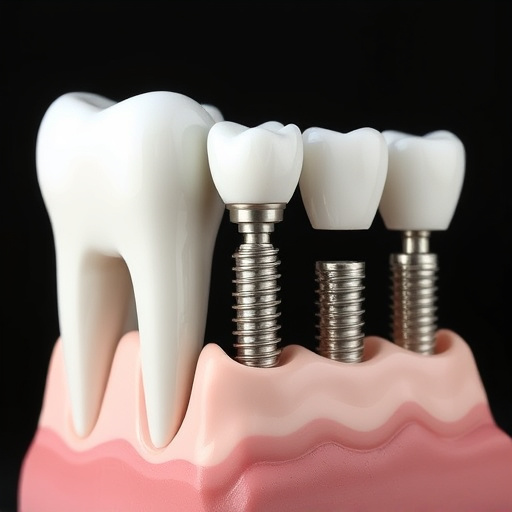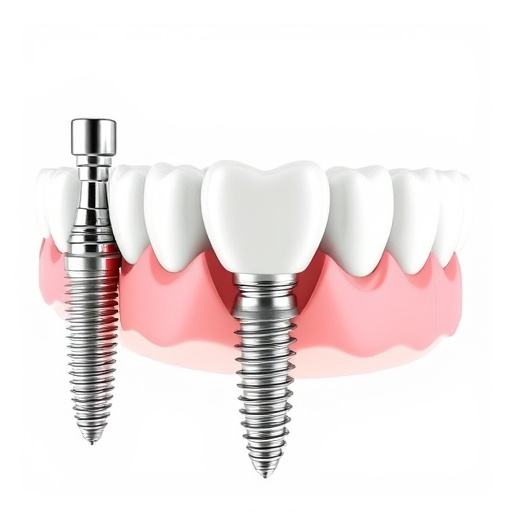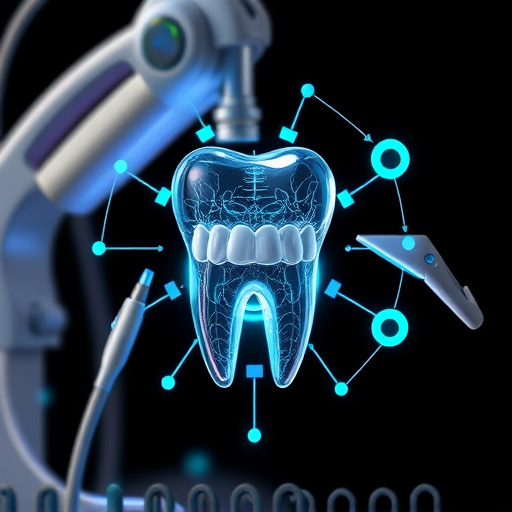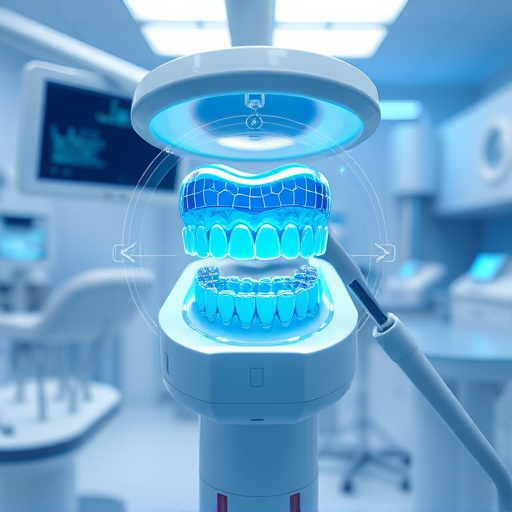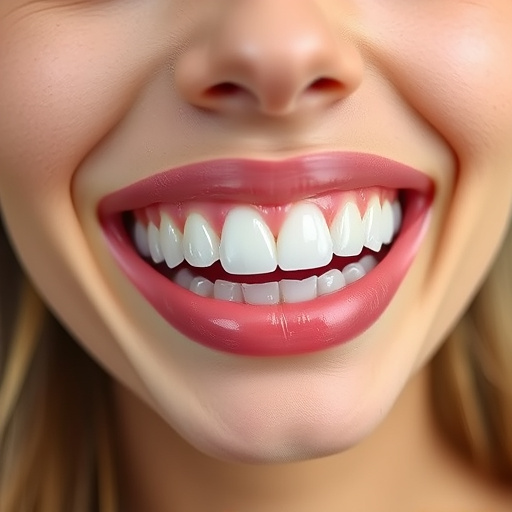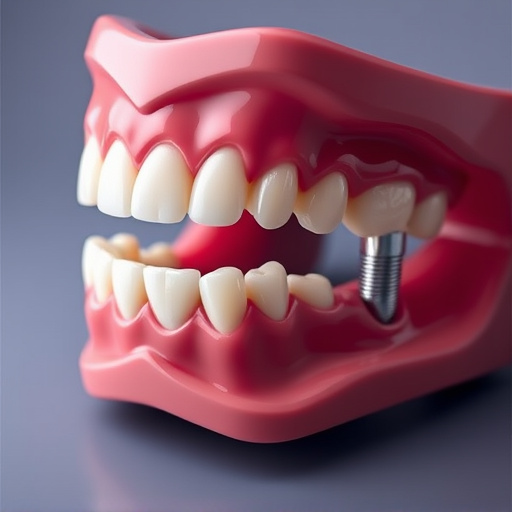Night grinding (bruxism) causes tooth wear, headaches, and potential hearing loss. Recognize signs like jaw pain and children's growth issues. Night guards protect teeth during sleep, preventing sensitivity, chipping, and extractions. Custom-fitted guards, available in various material options, lower muscle tension and safeguard dental health, reducing complex treatments needed later. Regular dental check-ups monitor bruxism complications, emphasizing the importance of preventive dentistry through night guard use.
Night grinding, or bruxism, is a common sleep disorder affecting millions. This relentless clenching and grinding can lead to significant dental damage and severe nighttime trauma. Fortunately, a simple solution exists: night guards for grinding. These protective devices, worn during sleep, cushion teeth from the destructive forces of bruxism, providing relief and preserving oral health. In this article, we’ll explore the impacts of night grinding, the vital role night guards play, and the various benefits and types available to prevent traumatic experiences.
- Understanding Night Grinding and Its Impact
- The Role of a Night Guard in Protecting Teeth
- Benefits and Types of Night Guards for Effective Trauma Prevention
Understanding Night Grinding and Its Impact
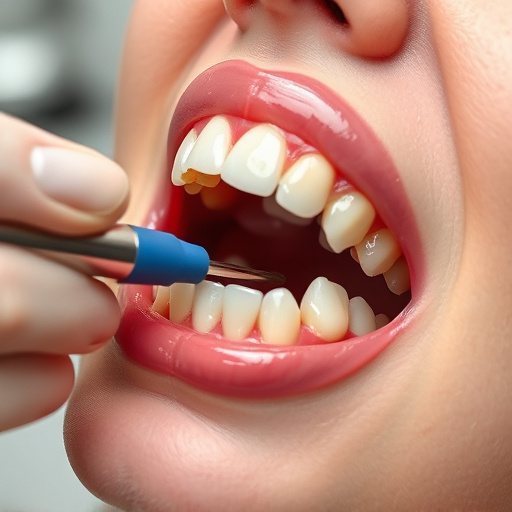
Night grinding, or bruxism, is a common dental condition that can have significant effects on an individual’s overall well-being. This involuntary clenching or grinding of teeth often occurs during sleep, leading to potential wear and tear on the tooth enamel and underlying structures. Over time, night grinding can result in headaches, jaw pain, and even hearing loss due to the force exerted. For children, it may impact their growth and development, causing issues like misaligned teeth and temporomandibular joint (TMJ) disorders. Recognizing the signs of bruxism is crucial, as it enables individuals to seek appropriate solutions, such as wearing a night guard for grinding.
A night guard for grinding is a custom-fitted dental device designed to protect the teeth during sleep. It acts as a physical barrier between the upper and lower teeth, minimizing their contact and reducing the risk of damage. This simple yet effective solution has been shown to alleviate the symptoms associated with bruxism and prevent further complications. In addition to night guards, regular dental check-ups, including routine oral exams and children’s dentistry services, can play a vital role in managing and treating bruxism by allowing dentists to monitor any changes and provide necessary interventions, such as dental bonding for repair.
The Role of a Night Guard in Protecting Teeth
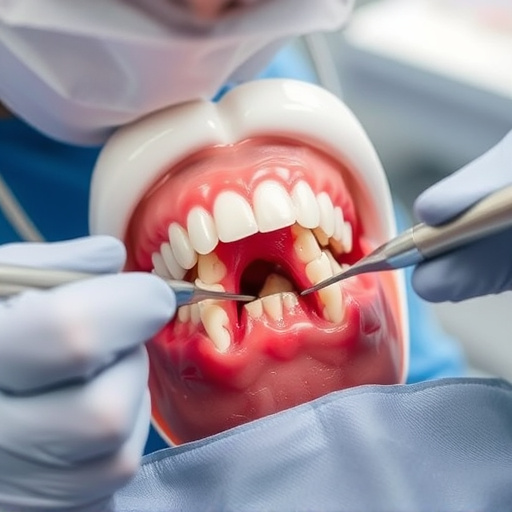
A night guard for grinding is a crucial tool in the arsenal of any family dentistry practice focused on preventive dentistry. It plays a vital role in protecting teeth from the destructive forces at play during sleep. Grinding, or bruxism, can lead to significant wear and tear on tooth enamel, potentially causing sensitivity, chipping, and even tooth extractions if left unaddressed. By wearing a custom-fitted night guard while sleeping, individuals can mitigate these risks.
These protective devices are designed to prevent the upper and lower teeth from coming into contact with each other, thus halting the grinding action. A good quality night guard for grinding not only preserves dental health but also improves overall oral well-being. It’s a simple yet effective solution that can head off more complex dental issues down the road, such as those that might require extensive treatments or even tooth extractions.
Benefits and Types of Night Guards for Effective Trauma Prevention
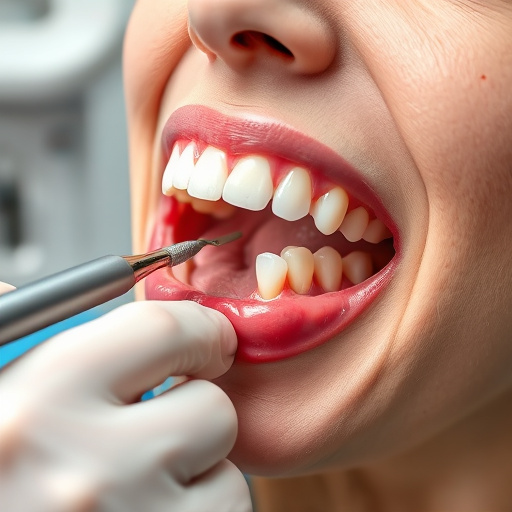
Night guards for grinding, also known as occlusal guards or bite plates, offer a plethora of benefits in the quest to protect against nighttime trauma. For individuals experiencing bruxism (tooth grinding), these custom-fit mouthguards are a game-changer. They work by keeping the jaws in a relaxed position, reducing muscle tension and the potential for tooth wear, chips, or fractures caused by chronic grinding. This prevention method is especially crucial if you frequently experience tooth pain or sensitivity after waking up, which could be indicative of damaged teeth due to grinding.
There are various types available, each with unique features catering to different needs. Soft night guards provide comfort and flexibility, ideal for those new to wearing a guard. Medium-to-hard options offer more stability but may require periodic adjustment. Some advanced models incorporate heat-sensitive or memory materials that ensure a perfect fit, enhancing their effectiveness in preventing dental issues related to grinding, such as tooth extractions and the need for cosmetic fillings or even dental implants.
Nighttime tooth grinding (bruxism) can lead to significant dental issues and impact overall well-being. Thankfully, a custom night guard for grinding serves as an effective solution, providing much-needed protection during sleep. By mitigating the effects of bruxism, these guards help prevent enamel wear, jaw pain, and potential traumatic injuries. With various types available, choosing the right night guard ensures optimal comfort and trauma prevention, allowing you to sleep peacefully knowing your teeth are safe.









